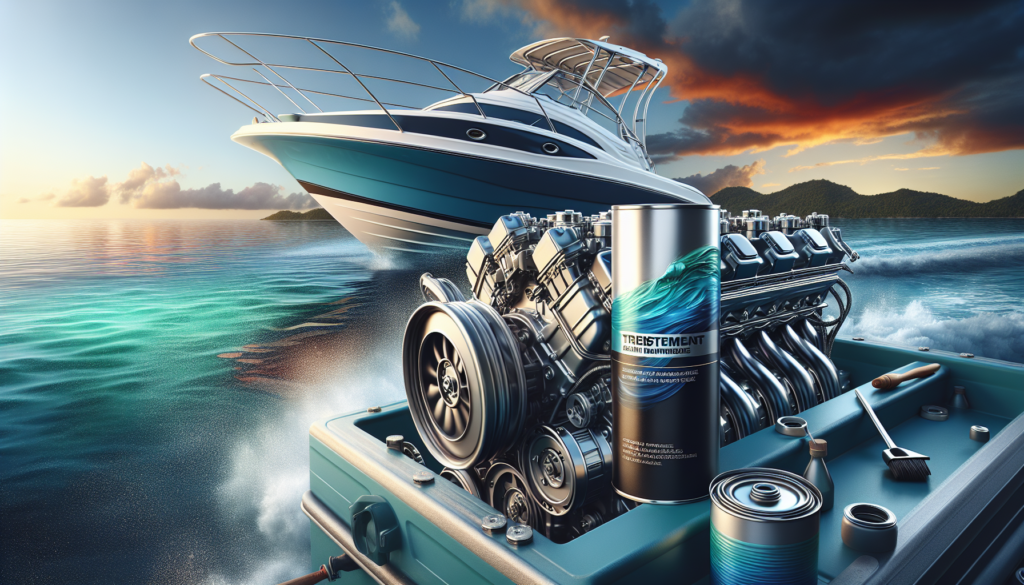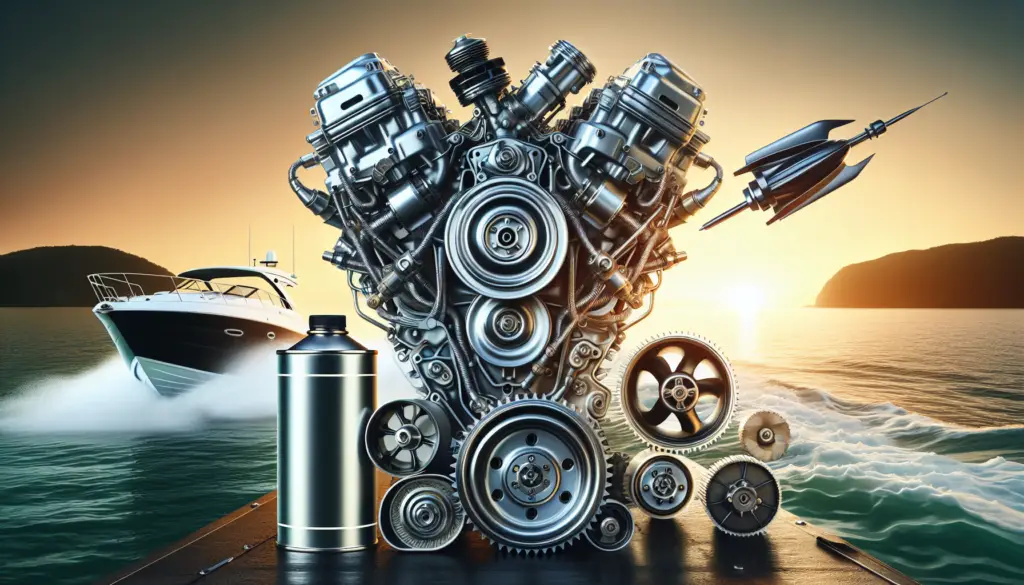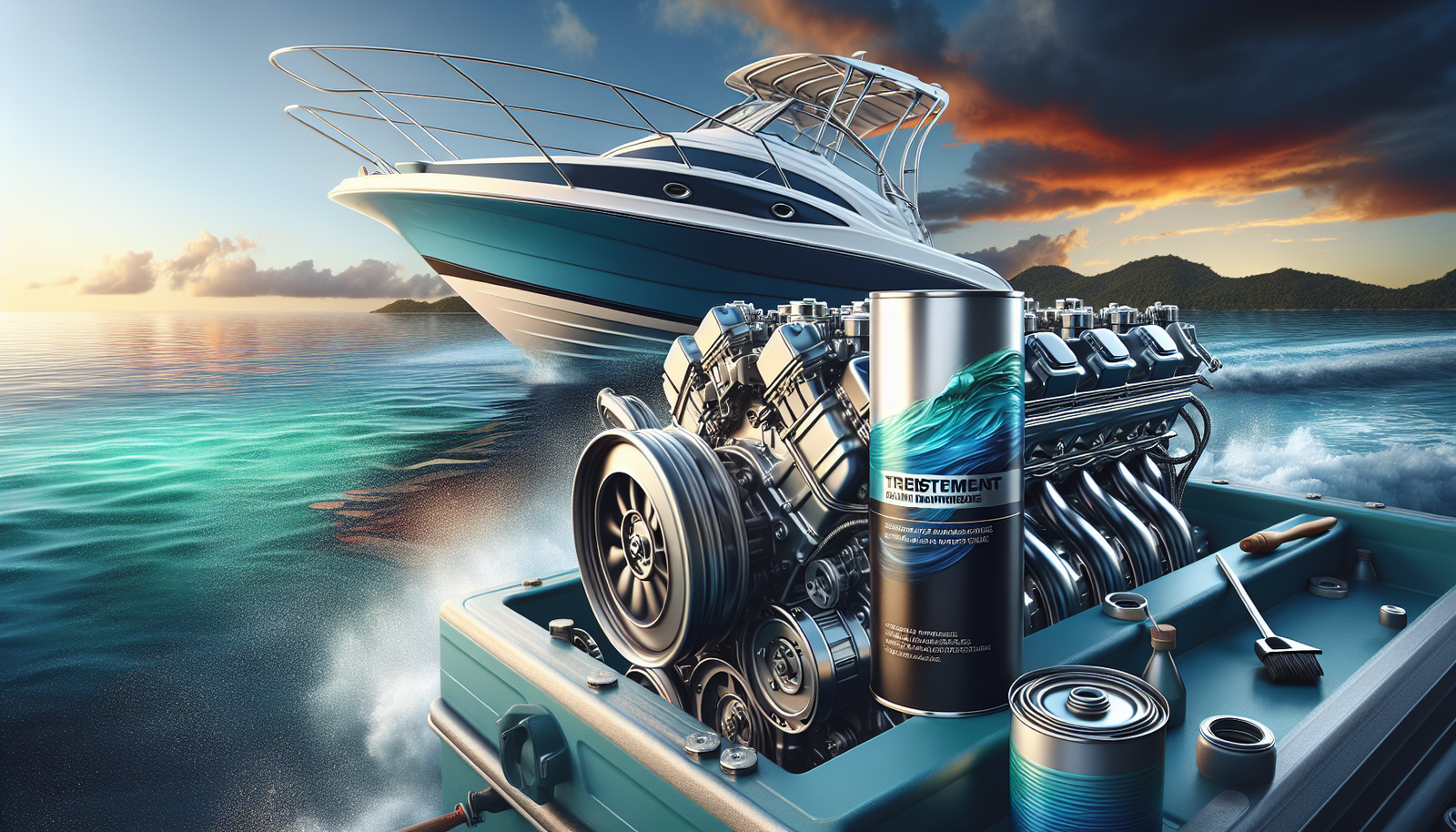Sailing blissfully across the water in your boat can suddenly turn into a frustrating experience if you run into ethanol-related engine problems. In the article “Top Ways To Prevent Ethanol-Related Issues In Your Boat Engine,” not only will you learn about the potential damaging effects of ethanol on your engine, but you’ll also discover some of the best methods to prevent these troublesome issues. Extending the life of your boat engine and ensuring smooth cruising is easier than you might think!

Understanding Ethanol and Its Impact on Boat Engines
In order to understand the relationship between ethanol and boat engines, we must first unravel the mystery of what exactly ethanol is.
What is Ethanol?
Essentially, ethanol is a type of alcohol created from various plant materials, including corn, sugar cane, and grains. Although often used in alcoholic beverages, it’s also a crucial ingredient for motor fuels. You might be surprised to learn that it’s pretty common in gasoline, often making up around 10% of the fuel you pump into your vehicles.
Why is Ethanol Used in Fuel?
One might wonder why such an element is incorporated in the fuel. It’s actually because ethanol is a high-performance, clean-burning fuel that reduces the emission of greenhouse gases. This gives it a positive environmental impact, and as a renewable resource, it’s more sustainable than traditional gasoline.
Potential Harm of Ethanol to Boat Engines
Despite the environmental benefits, haemorrhages could occur when ethanol and boat engines mix. That’s because ethanol, being alcohol, has a propensity for absorbing water which can cause difficulties in the marine environment where boats are continually exposed to moisture.
Common Ethanol-Related Engine Problems
Some common engine problems which may be blamed on ethanol include clumped debris clogging the fuel system, rubber and plastic parts getting dissolved, and an issue termed as phase separation––where water and gasoline separate in the fuel tank. These are just a few of the troubles you might encounter thanks to ethanol.
The Chemistry Behind Ethanol and Water
Understanding the relationship between ethanol and water is crucial when dealing with boat engines.
How Ethanol Attracts Water
Ethanol molecules love water—so much so that they pull in moisture from the surrounding air, which inevitably wanders into the boat’s fuel tanks given enough time. It can even attract water directly from humid air or through small openings in the fuel system.
The Problem of Phase Separation
Phase separation is where the trouble starts. It occurs when the ethanol absorbs more water than it can handle, causing the water and gasoline to separate. This mix of water-saturated ethanol sinks to the bottom of your tank—right where the engine’s fuel intake is.
Impacts of Water in the Engine
Water in your engine can cause a whole host of problems. It can lead to corrosion, particularly in aluminium parts, making your engine parts wear out sooner than they should. Over time, it can clog your fuel system or interfere with your boat’s performance on the water.
Recognizing Ethanol-Related Engine Issues
Awareness of the symptoms of ethanol-related engine problems can help in early identification and fixing the issues.
General Symptoms to Watch out for
General indications of ethanol damage might include poor engine performance, decreased fuel efficiency, or trouble starting the engine. If your vessel is behaving strangely, ethanol could very well be the culprit.
Specific Symptoms of Ethanol Damage in Boat Engines
On a more boat-specific note, frequent stalling, hesitation, or a decrease in speed or acceleration could be signs of ethanol damage. If such issues get ignored, they could lead to expensive repairs or even a complete engine replacement.
Checking for Fuel System Contamination
In case you suspect a contamination, it’s essential to check your fuel system. Look for any discolouration or debris in your fuel–these are telltale signs that water and ethanol have had an uncouth rendezvous inside your gas tank.

Choosing the Right Fuel for Your Boat
Now that you understand the potential problems ethanol can cause, let’s talk about picking the right fuel for your boat.
Understanding Fuel Types and their Components
Not every fuel is created equally. Some contain added ethanol, others are ethanol-free. It’s critical to choose a fuel that’s designed for boat engines, and if possible, one that doesn’t contain ethanol.
Importance of Ethanol-Free Gas in Boats
While it might be slightly more expensive, ethanol-free gas is typically the best choice for boats. It eliminates the potential engine problems caused by ethanol, resulting in better performance and adding more life to your engine.
Where to Find Ethanol-free Gas
Locating ethanol-free gas might be a challenge, especially with more pump stations opting for ethanol-mixed fuels. However, marinas often provide an ethanol-free option that is safer for watercraft.
Proper Fuel Management
Proper fuel management goes a long way toward preventing ethanol-related problems.
Keeping Your Fuel Fresh
Keeping your fuel fresh is the first step. Older fuel tends to attract more water, increasing the risk of phase separation. Regular top-ups with fresh fuel can help you avoid this issue.
Avoiding Long-term Storage of Fuel
Long-term storage of fuel—in the offseason, for example—can invite moisture accumulation. If you’re storing your boat for a while, try to drain the fuel beforehand, or use a stabilizer to maintain freshness.
Importance of Regular Fuel System Check-up
Scheduling regular fuel system check-ups aid in early detection of these problems. Regular inspection and maintenance can save you a lot of headaches in the long run.
Using Fuel Additives
Fuel additives can be helpful in preventing ethanol-related problems.
What are Fuel Additives?
Fuel additives are substances that you add to your fuel to improve its performance, efficiency, or to prevent problems like phase separation.
Benefits of Using Fuel Stabilizers
Fuel stabilizers are a common type of fuel additive. They help maintain the freshness of the fuel, even when in storage, reducing the risk of phase separation.
Best Fuel Additives and Stabilizers for Boat Engines
While there are many options available, look for fuel additives that are designed specifically for boats, and that are clearly labelled as being effective against phase separation. Your local marina can provide more specific recommendations.
Maintaining Your Boat’s Fuel System
Beyond just fuel management, overall maintenance of your boat’s fuel system is equally crucial.
Routine Inspections and Cleaning of the Fuel System
On a regular basis, make sure to inspect and clean the fuel system. Look for any rust or debris, or any indication of water contamination.
Replacing Fuel Filters Regularly
Even with the most careful inspection, some particulate might still find its way through. That’s where the fuel filter comes in. Regularly replacing the fuel filters can also help keep any hitches at bay.
The Role of Fuel-Water Separators in Preventing Ethanol-Related Issues
Investing in a fuel-water separator is another good step. These devices separate any water that may have gotten into your fuel, preventing it from reaching your engine.
Regular Engine Servicing
Regular engine maintenance can help prolong the life of your boat.
Importance of Regular Engine Tune-ups
Just like your car, your boat also needs regular tune-ups. This will ensure that your engine is working at its optimal capacity and detect any potential ethanol-related issues.
Professional Inspection of Engine Parts
Professional examination can identify damages before they become severe. Corroded parts, for instance, could be a sign of water contamination and a technician may detect it far sooner.
Fixing Ethanol-Related Damages
If, unfortunately, your engine suffers from any ethanol-related damages, it’s important to address them immediately. The longer you wait, the worse they might become.
Proper Boat Storage
Even something as simple as where and how you store your boat can affect your engine’s health.
Importance of Proper Boat Storage
Proper storage can help reduce your engine’s exposure to ethanol-related issues. It reduces the likelihood of water contamination, especially in humid environments.
Steps for Proper Boat Storage
Ideal boat storage involves a dry, secure location with good ventilation. To avoid condensation, you could look into options like dehumidifiers or even chemical desiccants.
Dealing with Internal Condensation
During storage, inclement weather might cause internal condensation within the fuel tank. To avoid this, you may consider using a fuel cap cover to help maintain dryness.
Educating Yourself and Spreading Awareness
One of the most powerful ways you can protect your boat from ethanol-related issues is by educating yourself and others.
Getting Familiar with your Boat’s Manual
Always start with your boat’s manual– it should provide details on fuel requirements, proper maintenance, and potential issues to look out for.
Keeping Up-to-Date with Ethanol-Related News
Stay updated with legislative changes or any news regarding ethanol use in fuel.
Sharing Knowledge with Other Boat Owners
Your fellow mariners might be completely oblivious to the ethanol and water imbroglio. Share your insights with other boat owners to create general awareness.
Advocating for Ethanol-Free Fuel Options
Lastly, advocate for more availability of ethanol-free fuel options. Ethanol’s adverse impact on boat engines is arguably substantial enough to warrant this change.
In conclusion, navigating around ethanol-related issues in your boat engine might seem challenging, but with adequate understanding, the right fuel selection, and careful maintenance, you can significantly reduce any associated risks.

